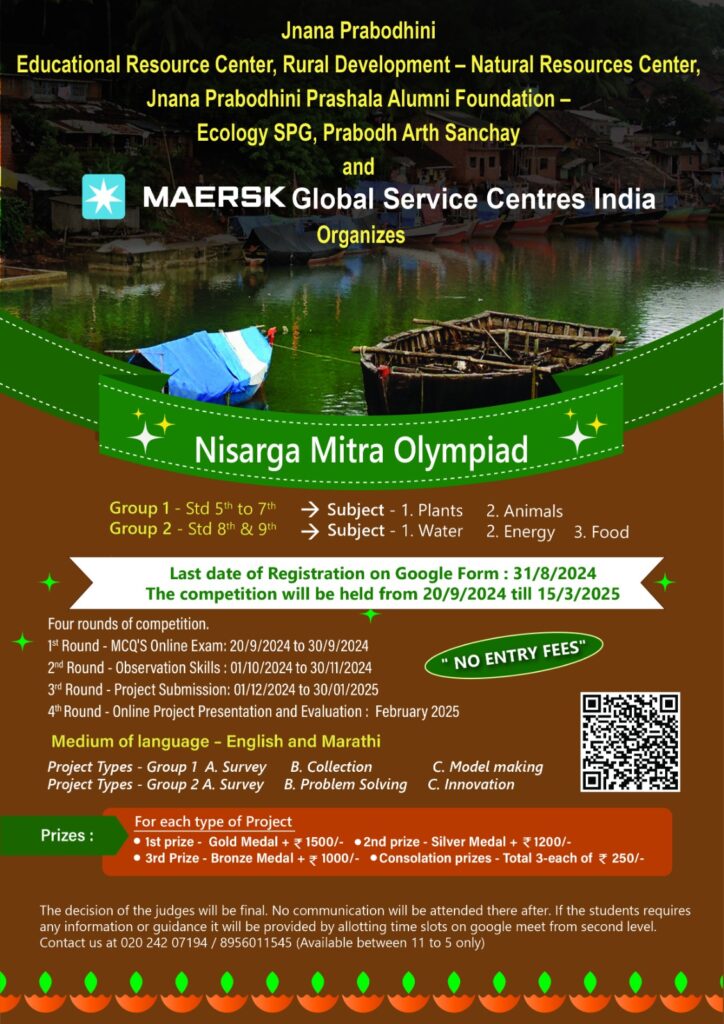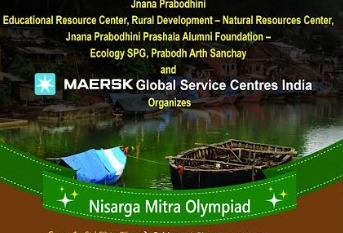[ad_1]
Cash prizes will be awarded to the first, second, and third place winners in both groups, as well as consolation prizes.The competition will consist of four rounds. The first round will be a multiple-choice online exam. The second round will involve an activity based on observation skills. The third round will focus on project creation. The fourth and final round will involve the evaluation of selected presentations. Project presentations are expected to be done online. Successful students who clear the rounds will receive certificates. Teachers who take a special interest in guiding the students in their projects will also be recognized and awarded certificates.

Senior educationist Nalini Gujarathi and Ajay Phatak from the Ecological Society are the chief mentors of this competition, while Pallavi Paradkar from the Jnana Prabodhini Educational Resource Center is the chief organizer. In addition, various subject experts are actively involved in organizing this competition. Cash prizes will be awarded to the first, second, and third place winners in both groups, as well as consolation prizes.
Maersk Global Service Centre India has supported the organization of the competition, while ‘Prabodh Arthasanchay’- financial institution has provided financial assistance for the prizes.Last year, around 1,800 children from 12 states across the country participated in this competition. While students from Maharashtra were the primary participants, the involvement of schools from conflict-prone and border regions like Assam, Manipur, and Jammu & Kashmir was particularly noteworthy, as mentioned by Pallavi Paradkar. Special encouragement is being given to school students from rural areas to participate, along with those from urban areas.
A special mobile app has also been developed for this Nisargamitra competition.Through this competition, school students will have the opportunity to develop their observation skills related to the environment around them through surveys and interviews, leading to questions and solutions. Students will be introduced to project-based learning and will have the chance to apply this method during the competition, fostering scientific curiosity among them. The practice of project presentation will also be developed. Overall, the aim is to build a curious relationship between school children and the nature around them.
[ad_2]
